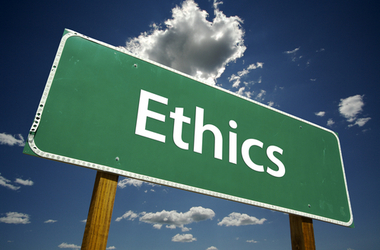I am taking Christian Ethics with Dr. Miller at ETS.
Our first assignment due this coming Monday was detailed thus: “Write a brief essay explaining his/her understanding of the relationship between the study of Ethics and ministry. ”
I’ll include an excerpt of my paper, and how I kept my ethics class abreast of what has come to be known around here as “Nipple-gate”:
The entire episode (now termed “Nipplegate,” by some) reflects the ethical dilemma of my vocation. I have a role to play as a writer with a Christian worldview, and I am attempting to minister to Christians and non-Christians. Not everyone will be happy all of the time with what is authored and portrayed at my blog. This is an obvious impossibility. Predilections, doctrines, and convictions vary a great deal within my viewing audience. However, I have an undeniable ethical responsibility to my readership to well-reflect the standards of the God I love and serve. The questions become–what is truly suitable to allow at my site; and where and how must I draw the line that distinguishes personal preferences from God’s standards?
Thus far, I have come to a resolution to make all reasonable efforts to conduct the affairs of my site in excellence, with the hopes that in so doing, it will not make others stumble. (This has always been my philosophy, but in this case, it was botched as I let an aspect of the site remain out of exceptionally close oversight.) My overall method is not foolproof for avoiding every glitch, but it is a deliberate vision for my work.
A bit of perspective is in order too. Not just for the way I think about my work, and the way I offer it up to readers, but for promoting the worldview I believe–in, and of, itself. Yes, each decision we make counts in the big picture, but how much better to see the big picture first, and then zoom in from a bigger view, down, into ordinary life. God, perfect and holy, is our guiding Light. God’s laws and rules do not just give us a guide; they mirror the character of God himself. His perfection is the standard and starting point for our choices. Seen this way, we are better able to make wise and ethical decisions.
That being said, it is the overarching decisions that carry the most import. So when Jesus sums up all the law and the prophets into the Great Commandment2, this is not an annulment of the law, but an encompassing of it. Sometimes in and among the nitpicking decisions and details of our conduct choices– even during our attempts to be righteous–we miss the Great Command altogether. God is marginalized by the rules themselves, and neighbors are trampled more than anything. It seems if the Spirit of the command is upheld, much of the rest can sorted out more easily.
When we attempt to deal in microcosms of various everyday ethical situations, we must not miss the point of the greater good, as God defines it. God defines it in the essence of who he truly is. His nature and character are the basis for our decisions that we must work out in practical and contextual ways. As we bump up against perfection, with our solutions, we come up as less-than-perfect. We inevitably do not meet the standard. Thus, we prove our need for God’s grace and forgiveness, and the grace and forgiveness of those around us. It is failed ethics balanced by applied grace that sustains, and saves us from the ethical ideals we can never attain, but must continually aim for, as they are reflections of Reality itself.
It will be my approach to apply the Great Commandment as the ethical plan in my ministry. As a foundation for my will, thoughts, motives, and deeds, my hope is to strive to keep these things fully loyal to God, the author and finisher of my faith; and to keep his human creation honored. This loyalty will mean laying aside self, and selfish ambition, but not just for the greater good. In reality, I will be attempting to set my life toward the world as is truly is, with God as the source of good, and goodness. This way will also be a light, enacted with those to whom I minister, as it reveals my core beliefs, Christian worldview, and the truth of God as revealed in Scripture.
2 Matthew 22:37-40 Jesus replied: “‘Love the Lord your God with all your heart and with all your soul and with all your mind.’ This is the first and greatest commandment. And the second is like it: ‘Love your neighbor as yourself.’ All the Law and the Prophets hang on these two commandments.”
I’d love to hear your reflections on the topic of ethics in ministry, or any related topic I’ve discussed here. Thank you for reading.
-Lisa




